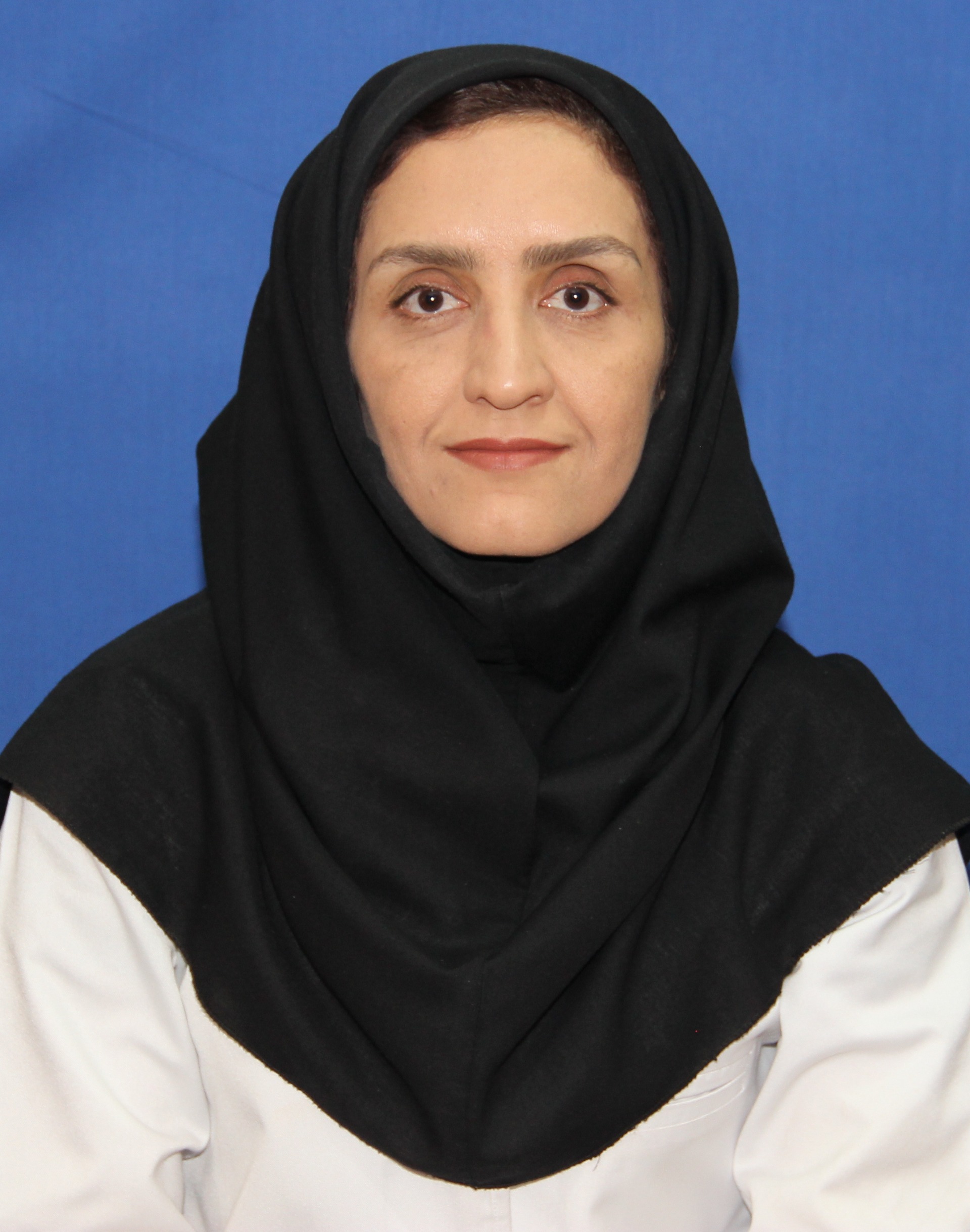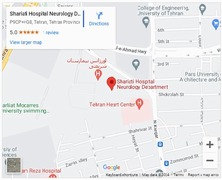Latest content
- 1404/04/07 Association between serum hemoglobin level and bone mineral density in adults: Iranian multi-center osteoporosis study (IMOS)
- 1404/04/07 Predictors of biochemical and structural response to medical therapy in patients with active acromegaly following surgery: a real-world perspective
- 1404/04/07 Continued rise in the incidence of thyroid cancer in Iran: true increase or overdiagnosis
- 1403/10/20 program 5th Convergence Congress in Endocrinology
- 1403/10/12 The effect of Nurse-led Care implementation on Quality of Care & remove of diabetic foot ulcer and explain patients’ experiences A Mixed Method study
- 1403/10/05 Ovarian volume, not follicle count, is independently associated with androgens in patients with polycystic ovary syndrome
- 1403/10/05 Multicentral health and care assessment of diabetic foot in patients with diabetes

Introduction of the training
ntroduction to the Endocrinology Training Unit
"Training is an activity through which individuals expand their knowledge and alter their thinking and behavior." The behavioral changes resulting from training and learning are based on cognitive, understanding, and behavioral needs, equipping individuals with skills such as efficiency, speed, accuracy, and diligence. In other words, training is a tool that should be employed in a way that equips all organizational components for coordinated change, development, and intellectual research.
Organizations must value the learning process from policymaking, needs assessment, and planning to implementation and evaluation so that participants can perceive a change in their behavior. In this regard, "human resources" are considered the most important organizational assets. Updating their knowledge and information through training courses can play a significant role in the progress and development of the organization. Therefore, organizations that consider training as an investment rather than a cost, with a systemic approach, will undoubtedly establish a dynamic and forward-looking organization whose effects will be more apparent in the future and in line with the organization's growth and development.
In this regard, the "Endocrinology and Metabolism Research Center of Tehran University of Medical Sciences" established its training unit as an independent unit in 1995. By benefiting from experienced and knowledgeable faculty members and utilizing the clinical and outpatient facilities, as well as well-equipped research laboratories, the center plays a significant role in training human resources in the field of medical research. To organize and develop targeted programs and educational activities of the Endocrinology Department and define the framework of actions of various units in educational processes, these regulations have been developed, and all respected faculty members, experts, and researchers of the Endocrinology and Metabolism Research Center are committed to implementing them
"Training is an activity through which individuals expand their knowledge and alter their thinking and behavior." The behavioral changes resulting from training and learning are based on cognitive, understanding, and behavioral needs, equipping individuals with skills such as efficiency, speed, accuracy, and diligence. In other words, training is a tool that should be employed in a way that equips all organizational components for coordinated change, development, and intellectual research.
Organizations must value the learning process from policymaking, needs assessment, and planning to implementation and evaluation so that participants can perceive a change in their behavior. In this regard, "human resources" are considered the most important organizational assets. Updating their knowledge and information through training courses can play a significant role in the progress and development of the organization. Therefore, organizations that consider training as an investment rather than a cost, with a systemic approach, will undoubtedly establish a dynamic and forward-looking organization whose effects will be more apparent in the future and in line with the organization's growth and development.
In this regard, the "Endocrinology and Metabolism Research Center of Tehran University of Medical Sciences" established its training unit as an independent unit in 1995. By benefiting from experienced and knowledgeable faculty members and utilizing the clinical and outpatient facilities, as well as well-equipped research laboratories, the center plays a significant role in training human resources in the field of medical research. To organize and develop targeted programs and educational activities of the Endocrinology Department and define the framework of actions of various units in educational processes, these regulations have been developed, and all respected faculty members, experts, and researchers of the Endocrinology and Metabolism Research Center are committed to implementing them
.
Educational activities in the Endocrinology Department are organized through two structural pillars:
• Endocrinology Department Education Council: This council is the policymaking and decision-making body in the field of education. All policies and decisions in the field of education are made through this council and are announced for implementation.
• Educational Program Management Unit: This unit is responsible for the implementation of educational programs.
In addition to organizing the education of medical students and resident physicians in the field of endocrinology and conducting specialized educational and research-oriented courses, the Endocrinology and Metabolism Research Center considers it its duty to transfer and translate the findings of all researchers of the center to improve the health of the people and patients and to raise the level of awareness of physicians and paramedical staff.
The field of endocrinology and metabolism is a subspecialty of internal medicine that studies diseases related to endocrine glands, including the hypothalamus, pituitary gland, thyroid, pancreas, adrenal glands, gonads, parathyroid glands, and calcium and phosphorus metabolism, as well as metabolic bone diseases and lipid metabolism.
Given the prevalence and disease burden, international standards, and the need to train human resources in this field and control non-communicable diseases in the country, this field is of particular importance.
The Endocrinology Department of Dr. Shariati Hospital: With the activities of its endocrinology subspecialty faculty and 18 beds for endocrinology patients, including patients with diabetes, hormonal disorders, thyroid disorders, and others, it provides comprehensive care.
Medical students of Tehran University of Medical Sciences at various levels, including subspecialty residents, residents, and various levels of general medical students, receive endocrinology training in this department.
Targeted training by endocrinology faculty members in the department includes:
• Daily morning rounds with students, interns, residents, and under the supervision of the department's subspecialty fellow and the relevant faculty member.
• Student presentations in the presence of residents and faculty according to the program.
• Grand rounds, consultations, and journal clubs conducted by faculty members.
• In-service conferences with the participation of students, interns, residents, and fellows.
• Patient presentations by students, interns, residents, and fellows.
• At the end of each course, students are evaluated formatively and summatively by faculty members.
At the end of the training course in the Endocrinology Department, students are expected to:
• Establish appropriate professional relationships with patients, their families, and the treatment team.
• Request appropriate paraclinical tests based on the patient's condition, perform diagnostic procedures, and collect necessary information from the patient.
• Diagnose the disease by interpreting information and clinical reasoning.
• Treat the patient by selecting the appropriate therapeutic approach.
• Refer the patient to the appropriate specialist when necessary.
• Request specialized consultations when necessary, based on their level of expertise.
Educational activities in the Endocrinology Department are organized through two structural pillars:
• Endocrinology Department Education Council: This council is the policymaking and decision-making body in the field of education. All policies and decisions in the field of education are made through this council and are announced for implementation.
• Educational Program Management Unit: This unit is responsible for the implementation of educational programs.
In addition to organizing the education of medical students and resident physicians in the field of endocrinology and conducting specialized educational and research-oriented courses, the Endocrinology and Metabolism Research Center considers it its duty to transfer and translate the findings of all researchers of the center to improve the health of the people and patients and to raise the level of awareness of physicians and paramedical staff.
The field of endocrinology and metabolism is a subspecialty of internal medicine that studies diseases related to endocrine glands, including the hypothalamus, pituitary gland, thyroid, pancreas, adrenal glands, gonads, parathyroid glands, and calcium and phosphorus metabolism, as well as metabolic bone diseases and lipid metabolism.
Given the prevalence and disease burden, international standards, and the need to train human resources in this field and control non-communicable diseases in the country, this field is of particular importance.
The Endocrinology Department of Dr. Shariati Hospital: With the activities of its endocrinology subspecialty faculty and 18 beds for endocrinology patients, including patients with diabetes, hormonal disorders, thyroid disorders, and others, it provides comprehensive care.
Medical students of Tehran University of Medical Sciences at various levels, including subspecialty residents, residents, and various levels of general medical students, receive endocrinology training in this department.
Targeted training by endocrinology faculty members in the department includes:
• Daily morning rounds with students, interns, residents, and under the supervision of the department's subspecialty fellow and the relevant faculty member.
• Student presentations in the presence of residents and faculty according to the program.
• Grand rounds, consultations, and journal clubs conducted by faculty members.
• In-service conferences with the participation of students, interns, residents, and fellows.
• Patient presentations by students, interns, residents, and fellows.
• At the end of each course, students are evaluated formatively and summatively by faculty members.
At the end of the training course in the Endocrinology Department, students are expected to:
• Establish appropriate professional relationships with patients, their families, and the treatment team.
• Request appropriate paraclinical tests based on the patient's condition, perform diagnostic procedures, and collect necessary information from the patient.
• Diagnose the disease by interpreting information and clinical reasoning.
• Treat the patient by selecting the appropriate therapeutic approach.
• Refer the patient to the appropriate specialist when necessary.
• Request specialized consultations when necessary, based on their level of expertise.
Members of the training unit
|
|
|
|
|
|
Fatima ZakirhosseiniEndocrinology expert |
Contact us
Postal address: Jalal Al Ahmad Khababan - Shariati Hospital, main building, fifth floor, education unit
Contact number: 021-88220038
Fax: 021-88220038



.jpg)
.jpg)
